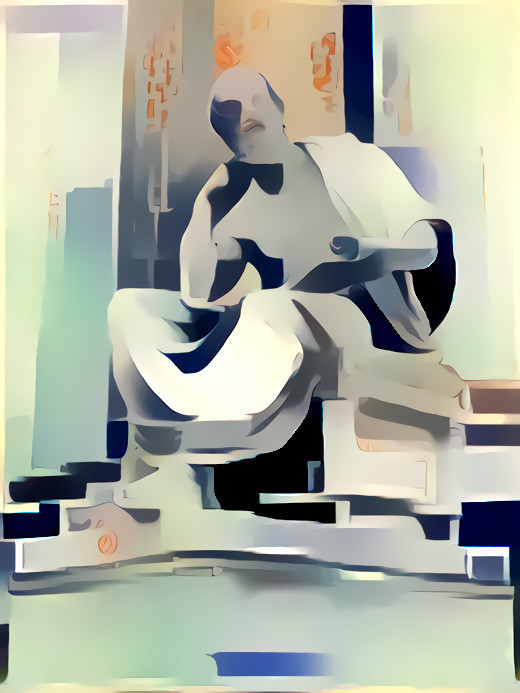
Have you ever felt like your mind was numb, drained, or exhausted during a long session of work or studying? Do you feel like work is painful, irritating, or unproductive? Here is an strategy that you can use to refresh your mind and get creative insights!
This method for refueling creativity was inspired from a surprising place, which is meditation. When you meditate every day, interesting side effects happen.
Not only are you much happier, but you learn to tap the buttons in your brain to generate insights, that improve the quality of your life!
Spiritual gurus and yogis have tapped into this potential, so why can’t we?
Is it possible to use these techniques to deal with our practical challenges? ABSOLUTELY!
In this article, you will learn how these four steps can improve your creative capacity:
- Learn to know when to take a break and when to keep working.
- Take a break for 10 minutes or longer (meditation is the most effective way).
- Let your mind think about anything it wants, the juicy ideas will come in!
- Come back to work feeling refreshed, motivated, and full of new insights.
Be aware:
Learning when to work and when to rest can be quite challenging!
When you’re scrambling to finish a work project before the deadline, breaks are the last thing that you want to do! Then, your eyes are glued to the screen for the rest of the night, which you will continue the mental marathon regardless of how productive you are.
On the other hand, if all you do is breaks, then you’re procrastinating! Eventually, you will run out of time, and you will go back to the work cramming session during the deadline.
How can we balance this act between work and breaks? Learn to observe yourself.
Seems simple, right?
It is simple! The catch is that you have to master the practice observing yourself. You need to learn when your body is out of gas, when to take a chill pill, and when to get back into the action.
Here are a few questions that can help you know whether you need a break or not:
- How do you feel?
- Do you have a headache?
- How long have you spent on this project?
- Does it feel like you can’t focus?
- Are you multitasking, bouncing from one task to another?
- Do you feel irritated?
- Does your mind feel blurry?
- Do you feel mentally drained?
- Are you stuck on a creative block?
- Is there a problem that feels impossible to solve?
- Are you being less productive by not taking a break?
Get into the habit of asking these questions to yourself.
As simple as this sounds, it is hard to put it into practice. Don’t underestimate how this can go over your head!
One of the biggest mistakes people make is that they spend hours dragging along on a project because they can’t overcome a creative block.
They don’t realize that a short break or meditation practice could give them the boost they need!
Take a break:
When you know it’s time to take a break, minimize the tabs, put the computer to sleep, move to a different location in your room, or find a spot outside.
In other words, completely break away from your work. Say to yourself, “Work is over, time to relax for a couple of minutes! Let it all go.”
How long you should take a break:
Do this for at least 10 minutes, and go longer if you are not in a rush. If you can go for 30 minutes to an hour, fantastic! The longer you can go, the more effective the break will be for boosting your clarity and insights.
Set an alarm on your phone or clock. This is to keep you from taking too short or too long of a break!
Here are a couple of different break methods:
- Formal meditation practice (which is most effective)
- Take a walk
- Observe nature, people, animals, or objects
- Grab a light snack or drink
- Lay down (careful, you might fall asleep!)
DO NOT do the following during your break:
Don’t get on your phone, check your emails, or watch a video!
The purpose of this break is to let your mind think for itself, recharge, and brew up new ideas! Getting distracted would defeat the whole purpose!
What about music?
Although music can be relaxing (and yes, many ideas are inspired by music), it is preferred to turn any music off. You want your mind to be as clean as and free as possible without any other influences or distractions so you can get the best, raw, juicy insights.
Don’t try to control your thoughts. Let the mind take the steering wheel and naturally guide you in the direction that it wants to go.
This is crucial, because when your mind can think about family, relationships, work, your habits, politics, and more without any restrictions, your intuition will bring you an abundance of creativity!
In other words: A free mind = less restrictions = more creativity.
What’s the catch?
Every time I meditate after a session of work, I literally fill my journal up a page or two with insights. What’s the catch? It sounds too good to be true…
The catch is you don’t always get the ideas you want. In fact, they come in a broad range of topics, because you aren’t restricting your mind.
For example, let’s say that you’re a college student, and you’re taking a break because you can’t seem to finish an essay. Here are a few insights that might come up in your mind:
- Sometimes an insight is just a sudden realization. You might notice that procrastinating on your essay caused you suffering and lackluster work. Your habits might shift from then on, because you want to become more proactive in the future.
- You discover a new resource to find a ‘mic-dropping’ conclusion for your essay, such as WikiQuotes.
- You might notice that the soda you were drinking gave you a headache this whole time.
- You might think of a new idea for a business, song, or story to tell your friends and family.
- You just recalled something in your history class. Your professor taught you about the history of Ghana, and their dependence on cash crops. You could use this as a morale for your essay on the dangers of too much dependence on one thing.
You could keep going on! Of course, you will have many different insights for yourself, not limited to the above.
From these examples, you might notice that you’re stepping out of the “work zone” and into another facet of your life. Being in a different place will give you different experiences, which gives you a different point of view on your project.
And lastly, notice how these insights aren’t always what we want, but instead what we need! If we’re stuck on a problem, it will take something out of our normal perspective to solve it, which means you might discover something unpleasant about the answer you derive.
When the time is up, open up your journal (if you have one), and ask yourself, “What did I learn during this break?” Write everything that comes up that you are able to recall.
Using a voice recorder is also very effective because it forces you to articulate your insights.
If you didn’t learn anything new? No problem! Practice makes perfect, and at least you got some energy back.
Afterwards when you get back to work, try to integrate your insights into the project itself.
Common objections:
Why do these breaks matter?
Not only will you become more creative and energized, but it will also improve your concentration skills in all facets of your life. When you can boldly separate the distinctions between work and rest, you will take your “work time” more seriously, and be more productive.
How does it make sense that you can rest and be more productive by working less?
Try to stop sleeping for a week, then see how “productive” you will be. Same principal applies to taking breaks, but is more subtly overlooked!
How is this an alternative to cramming or multitasking?
Multitasking is exhausting and only gets a fraction of the work done, while you suffer in the process! Imagine you’re on the beach making sand castles. Is it easier to build one huge sand castle, or run around maintaining three sand castles as the tide is crashing in?
That in mind, separating your work and relax time will help you stop multitasking in the long run.
Will taking more breaks make me feel less motivated to get back to work?
This is an interesting objection. You could possibly get stuck into procrastination, although the benefits outweigh the risks.
Having a break helps you enjoy your work because:
- You are more focused and refreshed.
- You don’t feel like you’re wasting time being slow and unproductive.
- You had your “me time.”
- Your morale is up because you come back to the playing field with a handful of new ideas and insights.
This stuff is so obvious, why are you emphasizing breaks so much? Doesn’t everyone do this already?
I understand that “taking breaks” sound like common sense. It is undeniably simple. However, if you practice this exercise on a daily basis, and if you especially combine it with meditation, the results will add up. We are made of our habits, so I encourage you to try this for yourself and see what the fuss is all about.
“The easier it is to do, the harder it is to change.” ~Eng’s Principle


One thought on “How to Use Breaks and Meditation to Refuel Your Creativity”